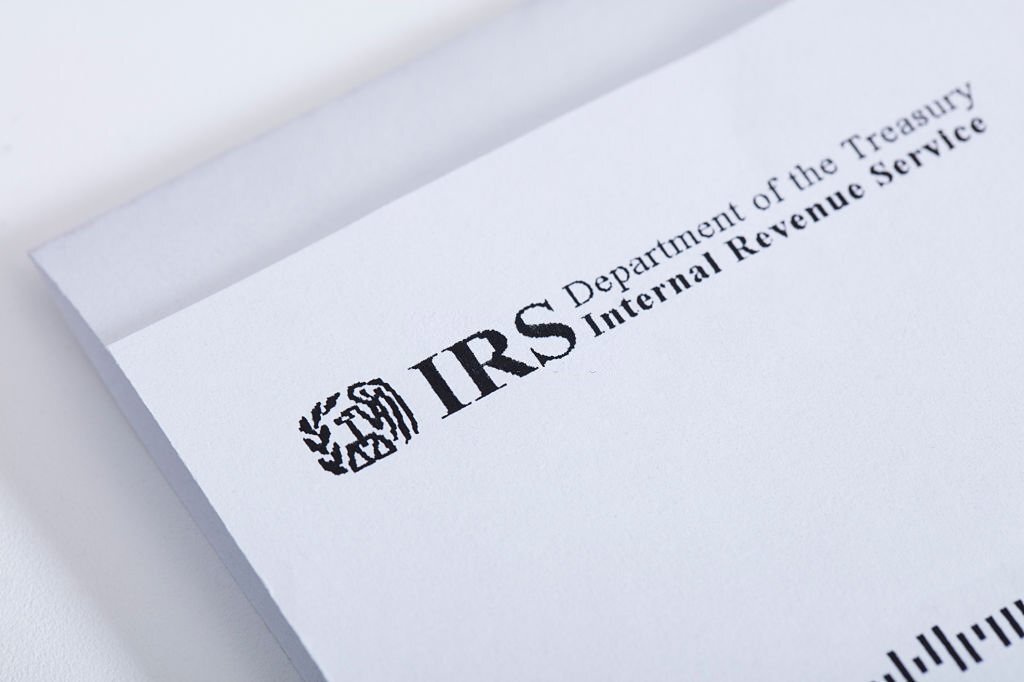It was reported earlier this week that approximately one-fifth of the IRS workforce has requested to take an offer through the second deferred resignation program (DRP 2.0) to be put on paid administrative leave through the end of September.
Roughly 20,000 IRS employees requested to take the deferred resignation offer before the deadline concluded on April 14, but many are still waiting for the contracts to be released so they can sign the offer. And about 2,100 of the 20,000 workers have had their requests for DRP 2.0 denied because their roles are “deemed critical.” Many of those who were denied are employed in the IRS Large Business and International Division, which is responsible for tax administration activities for domestic and foreign businesses, a source told CPA Practice Advisor.
Under the terms of DRP 2.0, employees who take the deal will be put on paid administrative leave through Sept. 30 and then leave their federal jobs.
IRS workers eligible for DRP 2.0 could start paid administrative leave as early as April 28, and “generally no later” than June 2, said an email sent to Treasury Department employees earlier this month.
- Related article: IRS Workers Whose Roles Are ‘Deemed Critical’ Get Rejected For DRP 2.0
- Related article: IRS Updates RIF Plans, Could Lay Off Up to 40% of Workforce
- Related article: Roughly 20,000 IRS Workers Have Requested DRP 2.0 Offer, Reports Say
- Related article: IRS Workers Faced a Resignation Deadline as Americans Rushed to File Their Taxes
- Related article: IRS Probationary Employees Told Not to Come Back to Work on April 14 After All
- Related article: IRS Workers Get Final Chance to Take Deferred Resignation Offer
Many IRS employees, who didn’t take the first deferred resignation offer from the Trump administration earlier this year, jumped at the chance to take the buyout this time around. Other IRS employees mulled taking the latest buyout offer but ultimately decided to ride it out, hoping they will be spared from the reduction in force (RIF) plans at the agency.
“I’m not gonna take my chances [on taking DRP 2.0],” one IRS employee wrote on Reddit. “If the RIF is in April that means I get paid until May/June. 3 or 4 months isn’t worth it. I’ll see how I fair. Dental insurance pays monthly. I’d gamble on a chance of surviving. Not much to lose if I don’t accept. Much more to lose if I leave rather than RIF. If I am RIFd, I can Uber/job seek during my notice time.”
“Probie who really wanted to make this a career but is now just trying to move on in hope that some much longer term friends can hang on to their careers. Sign me up [for DRP 2.0],” said another IRS employee on Reddit.
Below is the full text of the deferred resignation agreement, which was posted online by an IRS probationary employee who is taking the buyout offer.
Deferred Resignation Agreement
This agreement is between the Internal Revenue Service (hereafter Bureau) and the Employee identified below.
WHEREAS, on or about April 4, 2025, Treasury notified Bureau employees that Treasury is offering a voluntary deferred resignation option, the Deferred Resignation Program (DRP 2.0). The offer states that those employees who accept the offer will not be subject to any reduction in pay and benefits by their Bureau and exempts them from all applicable in-person work requirements until September 30, 2025 (or the date between September 30, 2025, and December 31, 2025, on which they first become eligible to retire);
WHEREAS, Bureau has received Employee’s voluntary request to be included in the Deferred Resignation Program; and
WHEREAS, Bureau accepts Employee’s request to be included in the Deferred Resignation Program; and
WHEREAS, Employee agrees to waive certain rights as detailed below in exchange for participation in the Deferred Resignation Program; and
WHEREAS, the parties wish to express the terms and conditions of the agreement between
WHEREFORE, the parties hereto agree as follows:
1. Employee is accepted into the Deferred Resignation Program in accordance with the terms of this agreement.
2. Employee agrees to continue working through the later of 06-01-2025 (hereafter Admin Leave Start Date) or one week after signing this agreement if Employee is age 40 or over, in an effort to ensure a smooth transition of Employee’s duties, responsibilities and work assignments to other staff. During this period, Employee agrees to perform their duties as assigned or directed by the Bureau and to adhere to all Bureau rules, policies, and procedures. Employee is exempt from all return to in-person work requirements. Employees occupying Filing Season critical positions must follow their existing telework or remote work schedules, if applicable. Employee agrees to turn in all Bureau equipment and property on or before the later of Admin Leave Start Date or one week after signing this agreement if Employee is age 40 or over, as directed by Employee’s supervisor.
3. Employee shall be placed on paid administrative leave by the later of Admin Leave Start Date or one week after signing this agreement if Employee is age 40 or over. Employee shall remain on paid administrative leave up through and including 09-30-2025 (hereafter Separation Date), or such earlier date on which Employee may choose to resign or otherwise separate from federal service (deferred resignation period). Employee agrees not to challenge the Bureau’s use of paid administrative leave in any forum. In the event that the use of paid administrative leave is found unlawful or set aside, Employee agrees to accept placement into another duty status, with the understanding that Bureau shall not require Employee to perform work after Admin Leave Start Date.
4. During the deferred resignation period, the Bureau shall continue to pay Employee’s current salary and Employee shall continue to retain and receive all benefits of Employee’s federal employment, including but not limited to TSP contributions, health, dental, vision and/or any other similar benefits, with Bureau making the government’s contribution. Employee will continue to accrue annual and sick leave during the deferred resignation period Employee will receive retirement service credit during the deferred resignation period. If Employee becomes eligible for a within-grade increase during the deferred resignation period, Bureau shall process the within-grade increase and Employee shall receive the associated salary increase.
5. After the later of Admin Leave Start Date, or one week after signing the agreement if Employee is age 40 or over, Employee shall not be expected to work during the deferred resignation period – regardless of what duty status the employee is placed in.
6. The Bureau agrees that Employee’s effective resignation or separation date from Bureau, and separation from federal service, shall be Separation Date. Employee, however, may resign from the federal service on any date prior to Separation Date. Bureau shall not take steps to terminate Employee’s employment with the federal service prior to Separation Date, unless the Employee is subject to discipline or adverse action for misconduct or performance that occur after this agreement is executed or if Employee is convicted of a felony that would render the Employee ineligible for Federal Employment
7. Employee will be entitled under 5 CFR part 550 to a lump sum payment of accrued annual leave upon separation from service.
8. Nothing in this agreement prevents Employee from retiring from federal service at any time if Employee is eligible to do so under the applicable provisions of CSRS or FERS. If Employee is eligible and elects to retire before September 30, 2025 (or, on the first eligibility date for those first eligible between September 30, 2025, and December 31, 2025), Employee’s retirement election shall override any benefits that would be available to Employee under this agreement after the effective date of Employee’s retirement. Employee understands that Employee is responsible for submitting a CSRS or FERS application.
9. Employee may accept non-federal employment during the deferred resignation period provided it does not violate the Standards of Ethical Conduct for Employees of the Executive Branch at 5 CFR part 2635, applicable federal laws, or any supplemental Standards of Ethical Conduct for Employees or regulations of the Bureau. Under these rules, certain activities are prohibited for current Bureau employees. Employee must seek approval from the Bureau following their standard procedures for outside activities prior to engaging in any outside employment during the deferred resignation period. To the extent that Employee does not have access to internal systems to input an outside activities request pursuant to standard procedures, Employee must contact the Bureau to request that management enter the request into the system on their behalf or provide the correct request form to be completed.
10. By signing this agreement, the parties acknowledge that they have entered the agreement knowingly, voluntarily, and free from improper influence, coercion, or duress. understands that, except as provided in paragraph 14 applicable to Employees 40 years of age or older, Employee cannot rescind this agreement, except in the sole discretion of the Bureau Head, which shall not be subject to review at the Merit Systems Protection Board (MSPB), Equal Employment Opportunity Commission (EEOC) or any other forum, and waives all rights to challenge the resignation before the Merit Systems Protection Board (MSPB), Equal Employment Opportunity Commission (EEOC), or any other forum.
11. Employee acknowledges that Bureau, in conjunction with other federal departments, agencies and units, will immediately rely on the terms of this agreement in consolidating and reassigning roles and otherwise taking steps to reform the Bureau workforce. Consequently, Employee understands that, as of the effective date of this agreement, or one week after signing the agreement if Employee is age 40 or over, this agreement is final and reflects Employee’s decision to resign effective Separation Date, unless Employee resigns or retires earlier as set forth above. Bureau shall comply with all terms of this agreement even if Employee’s position is eliminated or reassigned prior to Separation Date. Employee shall not be subject to furlough, termination, reduction in force or layoff as a result of a Bureau-initiated reorganization or reduction in force. Employee agrees to cooperate with steps taken by Bureau (such as reassignment to a different component) to exempt Employee from any reduction in force.
12. If there is a lapse in appropriations during the term of this agreement that requires Employee to be placed on furlough status, Employee shall be placed on furlough status during the lapse. Once the lapse is over, Employee shall be taken off furlough and shall receive back pay consistent with the Government Employee Fair Treatment Act of 2019.
13. Employee forever waives, and will not pursue through any judicial, administrative, or other process, any action against Bureau that is based on, arising from, or related to Employee’s employment at or termination of employment from Bureau or the deferred resignation offer, including any and all claims that were or could have been brought concerning said matters, and including any group, class or collective actions in which Employee is or might be included. This waiver includes all claims Employee may have under the Age Discrimination in Employment Act, the Civil Rights Act of 1964, as amended, the Civil Service Due Process Amendments of 1990, the Americans with Disabilities Act, the Genetic Information Nondiscrimination Act, the Family, and Medical Leave Act, and any other Federal, state, local or common law. Employee unconditionally releases Bureau and its present and former employees, officers, agents, representatives, and all persons acting by, through, or in concert with any of those individuals, either in their official or individual capacities, from any and all liability based on, arising from, or relating to the matters that Employee may have against them, including any and all claims that were or could have been brought (including as a member of a group action, class action or collective action). Consistent with applicable law, Employee similarly waives any claim that could be brought on Employee’s behalf by another entity, including Employee’s labor union or other non-government organization that purports to represent the Employee. Employee agrees to immediately withdraw any and all claims, complaints, charges, grievances, appeals, or civil actions of any kind whatsoever that he or she may have filed in any forum against the Bureau, its officers, employees or agents, arising out of his or her employment with the Bureau, as of the effective date of this Agreement. Notwithstanding the waivers above, claims which have or may be initiated under the Federal Employees Compensation Act (FECA) are exempted from this waiver by agreement of the parties.
14. If 40 years of age or older, Employee additionally waives any claims, complaints, charges, or civil actions the employee has or could have raised under the Age Discrimination in Employment Act against Bureau as of the effective date of this agreement. Employee further acknowledges the following in connection with this waiver of rights under the ADEA:
a. The Employee has reviewed the entire agreement and understands its provisions;
b. The Employee has not waived any rights or claims that may arise after the date thi: agreement is signed;
c. The Employee is advised to consult with an attorney prior to signing this Agreement;
d. The Employee has received, by separate attachment, information concerning the job titles, ages, and DRP eligibility of all other employees in the same job classification or organizational unit as required by the Older Workers Benefit Protection Act;
e. The Employee has 45 days to consider the terms of this Agreement but could, at the Employee’s sole discretion, sign the Agreement at any time prior to the expiration of the 45 days;
f. After returning a signed and dated copy of the agreement to Bureau, the employee retains the right to revoke the agreement for seven (7) days; and
g. The agreement will not become effective or enforceable until the revocation period has expired.
15. Consistent with law, Bureau agrees it will not seek reimbursement from the Employee, nor enforce any remaining service agreement requirements, in connection with a recruitment incentive, student loan repayment, or other service agreement. Bureau also agrees to waive any remaining service requirements from taking paid parental leave and stipulates that it will not seek reimbursement from the employee of any costs it may be entitled to recover under the Paid Parental Leave Act (5 U.S.C. 6382).
16. Should Employee become subject to military orders during the deferred resignation period, then any laws, rules, or other guidance applicable to the Employee as a servicemember that are inconsistent with provisions of this agreement shall supersede the inconsistent terms of this agreement.
17. This agreement shall constitute the entire agreement between the parties, and shall supersede all prior agreements, understandings and negotiations between the parties with respect to the terms of Employee’s resignation.
18. In case any provision of this agreement shall be held invalid, illegal, or unenforceable, the validity, legality and enforceability of the remaining provisions shall not in any way be affected or impaired thereby.
19. Should the Employee fail to comply with the terms of this agreement, the Bureau will notify the Employee. If the Employee fails to comply, the Bureau may nullify the terms of the agreement, and the Employee will be subject to removal from the deferred resignation program.
ON BEHALF OF THE INTERNAL REVENUE SERVICE:
This Agreement is authorized by the IRS Human Capital Officer
According to IRS employees, the June 1 date can be changed to April 28 with manager approval.
No. 13 in the agreement seemed to be a deal-breaker for some.
“13 is the reason I would never take it. Waive all ability to take any legal action,” one person wrote on Reddit. “But I do understand why so many are taking it. This whole thing is just messed up … Beyond what words can describe.”
“This is something some dont realize … DRP applications have to be approved and can be denied. There are people that wanted to take it that got denied and more than likely will eventually be cut anyways,” an IRS employee added. “Also, you have people that just don’t want to be here anymore and want to take DRP … By denying that, they (management) think these people will be the most productive they can … If I wanted to leave and they didn’t let me, I would just be doing the bare minimum I had to. Might even get to the point to make them fire me so I get severance and qualify for unemployment. Things here are about to get way worse for those of us that stick around if the rumors are correct … Just messed up.”
Given what the deferred resignation agreement says, if you were an IRS employee, would you take it? Or would you wait around and hopefully not get laid off?
Thanks for reading CPA Practice Advisor!
Subscribe Already registered? Log In
Need more information? Read the FAQs





Warren April 22 2025 at 4:14 pm
If you are removed due the below mentioned there is no severance pay. “I would just be doing the bare minimum I had to. Might even get to the point to make them fire me so I get severance” = you get fired = notching no severance or any other entitlement.